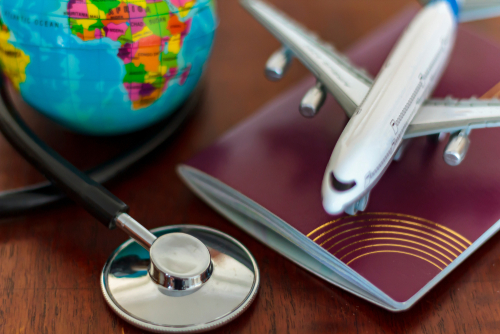Nearly a quarter or 247,000 of all doctors practicing in the US are foreign-trained. In the UK, more than 12% of the National Health Service (NHS) staff are non-British. Each year, many doctors travel abroad for work or relocation. Some may go on short-term medical missions while others decide to settle and make another country their new home. While there are many motivations to work overseas, some of the primary reasons are higher pay, better quality of life, desire to help those in need, meet new people, and experience another culture. But, is living or working overseas fulfilling in every aspect? Bright Financial Prospects Abroad Lure Physicians One of the major reasons why medical doctors are enticed to work in another country is the prospect of better pay. For instance, the United States is known for the high salaries its doctors receive. Other developed economies such as the United Kingdom, Canada, Switzerland, the Netherlands, and Denmark are also attractive for doctors where the average yearly salary for a specialist can reach over $300,000. For doctors and their families who have put a lot of money in their education, earning well is a way to recoup investments. It is also easier to build a good credit standing if you have a steady stream of income making it simple to avail of financing for medical equipment, further training, study, or other personal reasons. Financial Independence for Enhanced Wellbeing Gaining financial independence earlier is another desirable outcome of earning well giving flexibility and enough power to work on your own terms. Being a medical doctor is a passion and when you are financially independent, you can focus on the things that you love such as going on medical missions for free without worrying about mortgage or insurance payments. More importantly, attaining financial independence decreases the burden of physical and mental burnout. Physician burnout has negative consequences on the wellbeing and the health care system. However, when you are in a good physical and mental condition, you are in a better position to carry out your duties leading to better care for patients. Broadening of Professional Experience In addition to an enticing wage, working abroad offers exposure to different clinical settings and cases that you might not get in your home country. Diseases and illnesses vary from one country to another. For example, endemic cases of malaria are mostly present in tropical countries while certain types of cancer tied to Western lifestyles and diets are prevalent in developed economies. By working in diverse healthcare environments, you enhance your level of professional experience. Medical doctors gain valuable skills set and an international experience that can help them expand their career prospects. They may even land fellowships to develop specialist interests. These additional skills look great on their resumes helping boost their careers in the future. Immersion in a Different Cultural Experience Moreover, working and living abroad offer new social and cultural experiences that improve the wellbeing. While they may be at first daunting, living in another country is a bonus as you get to see new places, interact with an international crowd, mingle with the locals, try new food or dishes, and enjoy a different culture and tradition. Above all, interaction with a variety of people in or outside of work settings assist in developing soft skills that are extremely important in your profession. The ability to communicate well with others from patients and family members to fellow clinicians and management staff is a prized skill that you can’t learn in a classroom. Furthermore, immersion in the local culture also helps develop the ability to work in a team or a community. In or away from the workplace, it enables you to integrate well with the locals and the community and enhances your performance when you work together with colleagues. Pitfalls of Working Away from Your Home Country Relocating to another country to work as a doctor has also its pitfalls. Moving away is often stressful as one must think of logistics from packing up personal belongings, booking travel tickets and insurance, and arranging visas and work permits to making the journey itself. It also entails costs as you need to shell out money to pay for removal expenses, unless your employer pays for them. Once on site, you may need temporary accommodation while looking for a permanent one. If you’re moving with your family, you must have already contacted several schools to find a place for your kids. Emotional Challenges Are Real On top of physical and administrative hurdles, there are emotional challenges that you and your family must face because of a new environment. For families who are relocating, the period of adjustment can be long and hard. While younger kids might welcome a change of environment, older ones, especially teenagers will resent being pulled out of their comfort zone or hate leaving dear friends behind. Even those without a family will find it strange in the beginning to adjust in a new country. Family and friends are left behind and making new connections at the workplace and in the community become a struggle at first. There is always that extra effort that you must do and the willingness to let unfamiliar people in your life that can shape your experience in a new place. Conclusion Working abroad as a medical doctor can be fraught with challenges. However, your resilience can make the difference between loving or hating your new surroundings. If you can adapt to these obstacles, the advantages can quickly outweigh the disadvantages.
Working Overseas As A Medical Doctor? Here’s What To Expect

Share This Article
